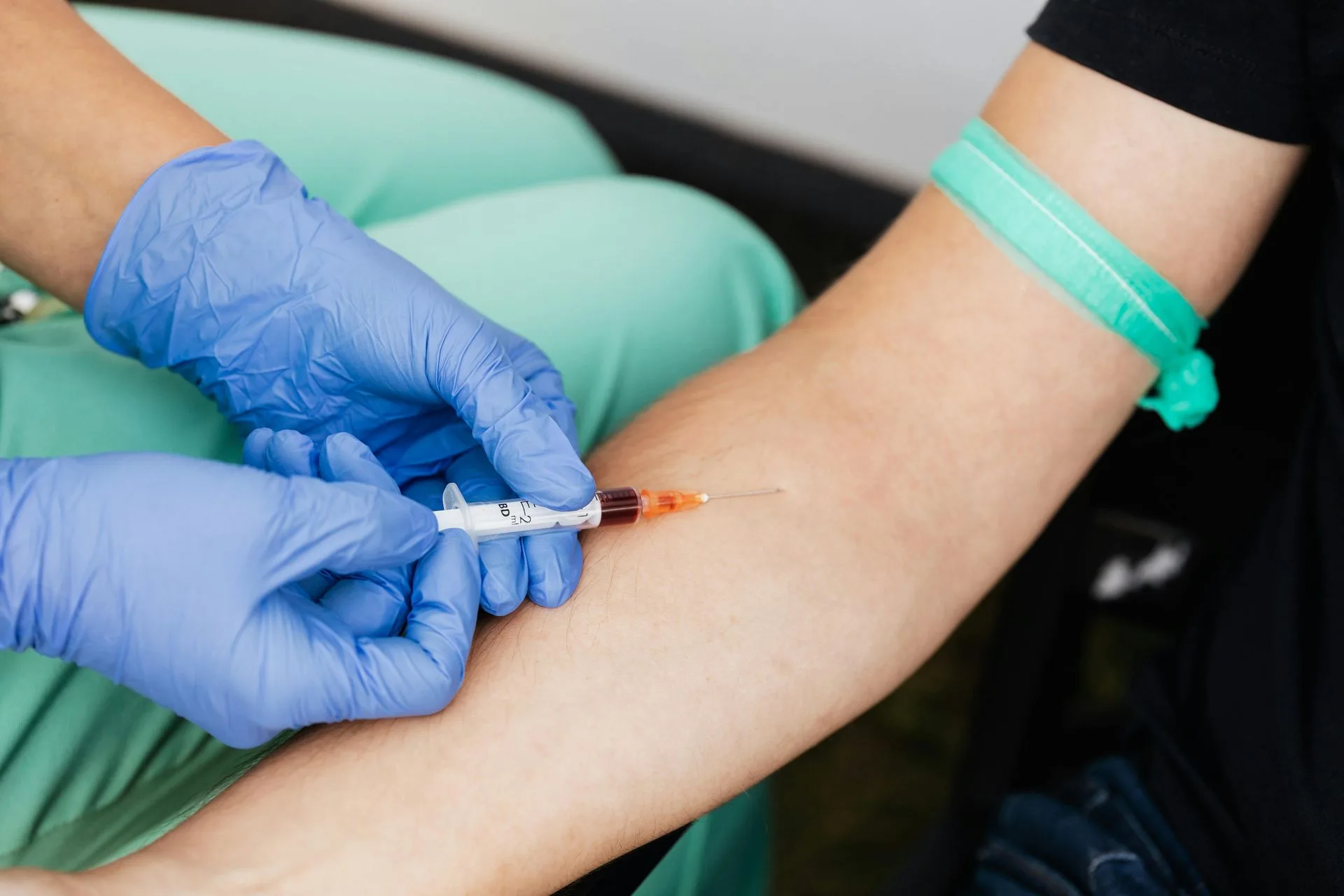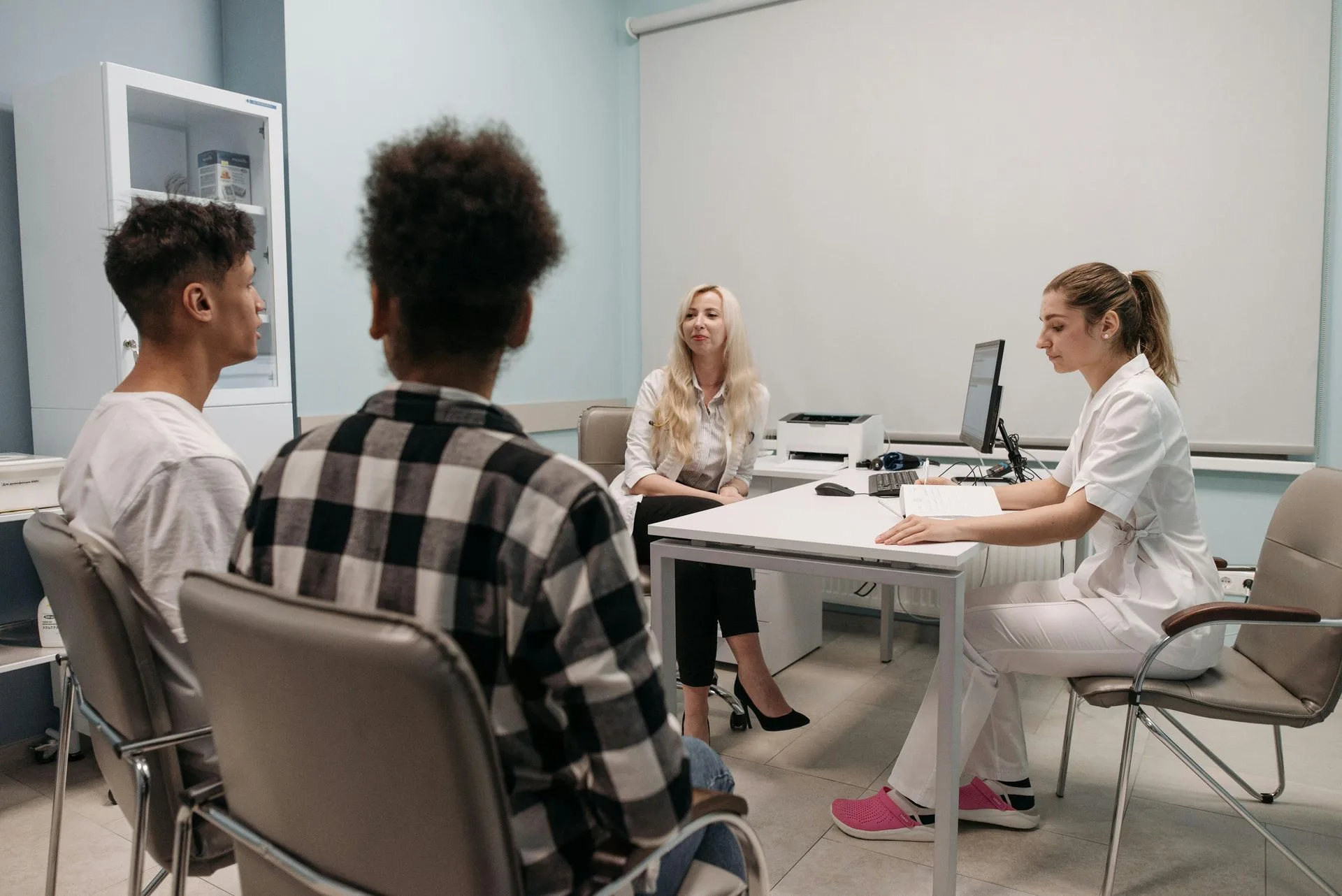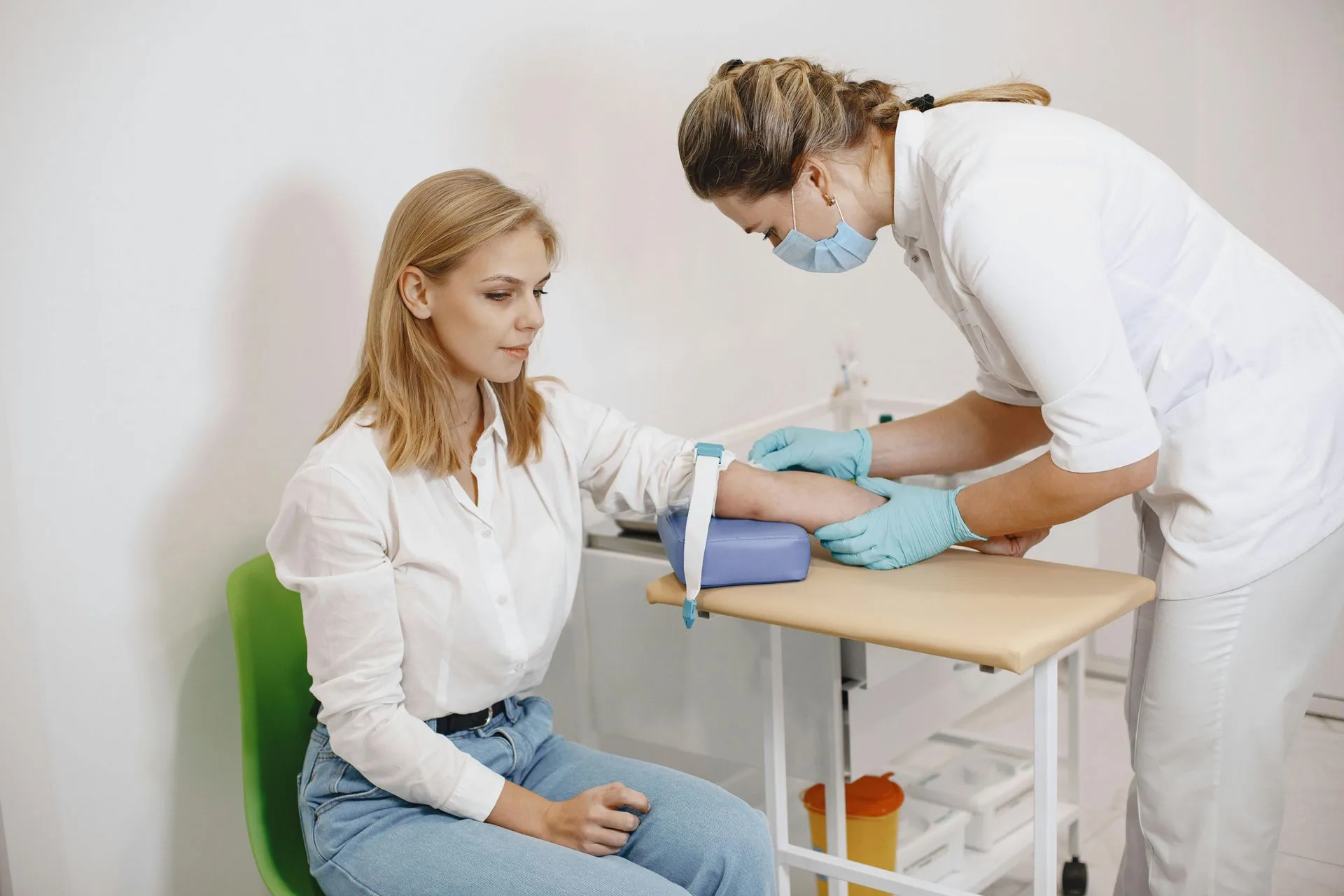What Is STD Testing?
STD testing is a medical process designed to detect infections that are passed from one person to another through sexual contact.
Some of the most common STDs include chlamydia, gonorrhea, syphilis, herpes, and HIV. Testing can involve various methods, including blood samples, urine tests, and swabs, depending on the type of infection being checked.
For many, the idea of getting tested can feel overwhelming or intimidating, but it’s a necessary step in protecting your health and that of your partner(s). STDs can often be asymptomatic, meaning you migh t have an infection without showing any signs. Regular testing ensures that you are aware of your status and can take appropriate action if necessary.

Why Opt for STD Testing?
1. Discreet and Private
We understand that the thought of getting tested for STDs can be uncomfortable or even embarrassing. That’s why UrgiClinic prioritizes your privacy. Our STD testing services are entirely confidential, meaning that your personal health information stays between you and your healthcare provider.
Confidential STD testing means you can get the care you need without worrying about your results being shared with anyone else, allowing you to focus on your health without added stress.
2. Early Detection
Getting tested for STDs regularly is crucial for maintaining your sexual health. Many STDs are treatable when caught early, and timely treatment can prevent complications such as fertility issues, chronic pain, and an increased risk of contracting other infections.
Testing can also help you make informed decisions about your sexual relationships, including protecting your partner(s) from potential transmission. Early detection is th e first step in preventing the spread of STDs and ensuring that you can manage any infections promptly.
3. No Appointments Necessary
At UrgiClinic, we understand that health concerns don’t always follow a set schedule. That’s why we offer walk-in testing with no need for an appointment. Whether you’re experiencing symptoms or simply want to check your status, you can come in at your convenience and get tested by knowledgeable healthcare professionals.
Common STDs and How Testing Works
STD testing is designed to detect a wide range of infections, each of which requires different testing methods. Here are some of the most common STDs and how our testing process works:
1. Chlamydia and Gonorrhea
Chlamydia and gonorrhea are two of the most prevalent sexually transmitted infections and often occur together. They can be detected with a simple urine test or swab from the affected area. Many people who contract these STDs do not exhibit symptoms, making regular testing especially important for early detection and treatment.
2. HIV
HIV testing is usually performed through a blood test. By detecting antibodies or antigens associated with the virus, healthcare providers can determine whether someone has contracted HIV. While there is currently no cure for HIV, early detection allows for effective management and prevention of transmission to others.
3. Syphilis
Syphilis is a bacterial infection that can cause long-term complications if not treated. A blood test is used to detect syphilis, and early treatment with antibiotics can cure the infection. Testing is especially important because syphilis can progress through multiple stages if left untreated, leading to serious health problems down the road.
4. Herpes (HSV-1 and HSV-2)
Herpes is a viral infection that can cause painful sores around the mouth or genital area. Testing for herpes typically involves a blood test or a swab from an active sore. While there is no cure for herpes, antiviral treatments can help manage symptoms and reduce the risk of spreading the virus to others.
Who Should Get STD Testing?

Regular STD testing is recommended for anyone who is sexually active, regardless of whether or not they are experiencing symptoms.
You should especially consider getting tested if:
- You’ve had unprotected sex : Condoms and other barrier methods can reduce the risk of STDs, but they are not foolproof. If you’ve had unprotected sex, even once, getting tested is a good idea.
- You’re starting a new sexual relationship : Before entering into a new relationship, it’s important to know your status and ensure that both you and your partner are free of infections.
- You’re experiencing symptoms : If you notice unusual symptoms like pain, discharge, or sores, it’s important to get tested as soon as possible. Symptoms of STDs can vary, and some people may not experience any symptoms at all.
- You’ve been informed th at a partner has tested positive for an STD : If someone you’ve been sexually involved with tests positive for an STD, it’s crucial to get tested and seek treatment if necessary.
Preparing for Your STD Test
Preparing for an STD test at UrgiClinic is simple and requires very little effort.
However, there are a few things you can do to make sure the process goes smoothly:
- Avoid urinating for at least an hour before the test : For urine-based tests, this can help ensure an accurate sample.
- Be ready to discuss any symptoms : If you’re experiencing unusual symptoms, let your h ealthcare provider know so they can determine which tests are appropriate for your situation.
- Know your medical history : Be prepared to share any relevant medical information, including past STD test results or any current medications you’re taking.
What to Expect After Your STD Test
After your test, you can expect to receive your results within a few days, depending on the type of test performed. Here’s what you can expect:
- Negative Results : A negative test result means that no infections were detected. However, it’s important to continue practicing safe sex and consider regular testing, especially if you have multiple partners.
- Positive Results : A positive result means that an infection was detected. This is not the end of the world—many STDs are treatable, and early detection can help prevent long-term health problems. At UrgiClinic urgent care, we’ll guide you through the next steps, including treatment options and how to protect your health moving forward.
Why UrgiClinic Urgent Care Is Your Best Option
At UrgiClinic urgent care, we pride ourselves on offering fast, discreet, and professional STD testing services. Here’s why you should choose us for your testing needs:
- Shorter Wait Times : No one likes waiting for test results. At UrgiClinic, we aim to get your results back as quickly as possible so you can make informed decisions about your health.
- Comprehensive Services : In addition to STD testing, we offer a wide range of urgent care services, making us your go-to healthcare provider for a variety of needs.
- Experienced Healthcare Professionals : Our team of experienced clinicians is dedicated to providing high-quality care while respecting your privacy.
Take Control of Your Health Today
Your health is your top priority, and regular STD testing is a key part of staying safe and healthy.
If you’re worried about a recent encounter or simply want peace of mind, walk-in at UrgiClinic Urgent Care for an STD test today—no appointment is needed. You’ll benefit from shorter wait times, comprehensive services, and a knowledgeable team dedicated to your well-being to aid with any non-life-threatening illnesses and injuries.




